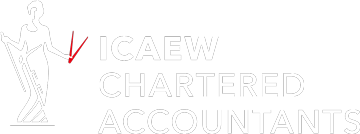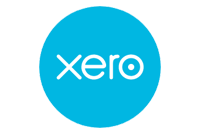Starting a business is an exhilarating journey, but amidst the excitement of bringing your ideas to life, it’s crucial not to overlook the importance of understanding tax considerations, especially in a bustling entrepreneurial hub like London. For startups and small to medium-sized enterprises (SMEs), navigating the intricacies of taxation can be daunting, but with the right knowledge and planning, it can be manageable. In this blog post, we’ll delve into some key tax considerations for startups and SMEs in London.
Understanding the Basics
One of the initial decisions for startups and SMEs is choosing the most suitable business structure, which can significantly impact tax obligations. Common structures include sole proprietorship, partnership, limited liability partnership (LLP), and limited company. Each structure has its own tax implications, affecting factors such as liability, tax rates, and reporting requirements. Consulting with a tax advisor or accountant can help entrepreneurs make informed decisions based on their specific circumstances.
Taking Advantage of Tax Incentives
The UK government offers several tax incentives aimed at supporting startups and SMEs. For instance, the Seed Enterprise Investment Scheme (SEIS) and Enterprise Investment Scheme (EIS) provide tax relief for investors, encouraging investment in early-stage businesses. Additionally, Research and Development (R&D) tax credits offer tax relief to companies engaged in qualifying R&D activities, providing a valuable source of funding for innovation. Being aware of and leveraging these incentives can help startups and SMEs reduce their tax burden and enhance their competitiveness.
VAT Considerations
Value-added tax (VAT) is a consumption tax levied on the sale of goods and services. For startups and SMEs reaching the VAT registration threshold (£90,000 as of 2024), registering for VAT becomes mandatory. However, voluntary registration may be beneficial for businesses below the threshold, allowing them to reclaim VAT on their expenses. Choosing the right VAT scheme, such as the Flat Rate Scheme or Annual Accounting Scheme, can also simplify VAT compliance and potentially reduce administrative burdens.

Employment Taxes
Hiring employees is a significant milestone for many startups and SMEs, but it also comes with tax implications. Employers are responsible for deducting income tax and NICs from employees’ salaries through the Pay As You Earn (PAYE) system. Additionally, employers must pay employer’s NICs on employees’ earnings above a certain threshold. Understanding these obligations is crucial for compliance and budgeting purposes, especially as the business grows and hires more staff.
International Tax Considerations
London’s status as a global business hub means that many startups and SMEs may engage in international activities, which can introduce complex tax considerations. Cross-border transactions, overseas operations, and international expansion all have tax implications that must be carefully managed. Double taxation treaties, transfer pricing regulations, and foreign tax credits are some of the mechanisms available to mitigate the risk of double taxation and ensure compliance with international tax laws.
Record-Keeping and Compliance
Maintaining accurate financial records is essential for tax compliance and financial management. Startups and SMEs must keep detailed records of their income, expenses, and transactions, as well as documentation supporting their tax filings. Cloud-based accounting software and professional bookkeeping services can streamline record-keeping processes and facilitate compliance with tax obligations. Regularly reviewing financial statements and seeking professional advice can help identify potential issues and ensure timely tax filings.
Seeking Professional Advice
Given the complexities of tax law and regulations, seeking professional advice from tax experts is invaluable for startups and SMEs. A qualified accountant or tax advisor can provide tailored guidance, identify tax-saving opportunities, and help businesses navigate potential pitfalls. While professional services may entail additional costs, the long-term benefits of accurate tax planning and compliance far outweigh the expenses.
Conclusion
Tax considerations play a significant role in the success and sustainability of startups and SMEs in London. By understanding the basics of taxation, choosing the right business structure, leveraging tax incentives, and maintaining compliance with tax laws, businesses can optimise their tax position and focus on achieving their growth objectives. While navigating the complexities of taxation may seem daunting, seeking professional advice and staying informed can empower entrepreneurs to make informed decisions and thrive in London’s dynamic business landscape.
Looking for expert financial guidance in London’s dynamic business scene? Look no further than Majestic Accountants. Their team of specialists offers startups and SMEs a comprehensive suite of accounting and tax advisory services. From navigating complex tax regulations to ensuring compliance and maximising financial efficiency, they’ll empower you to make informed decisions and focus on growing your business.












